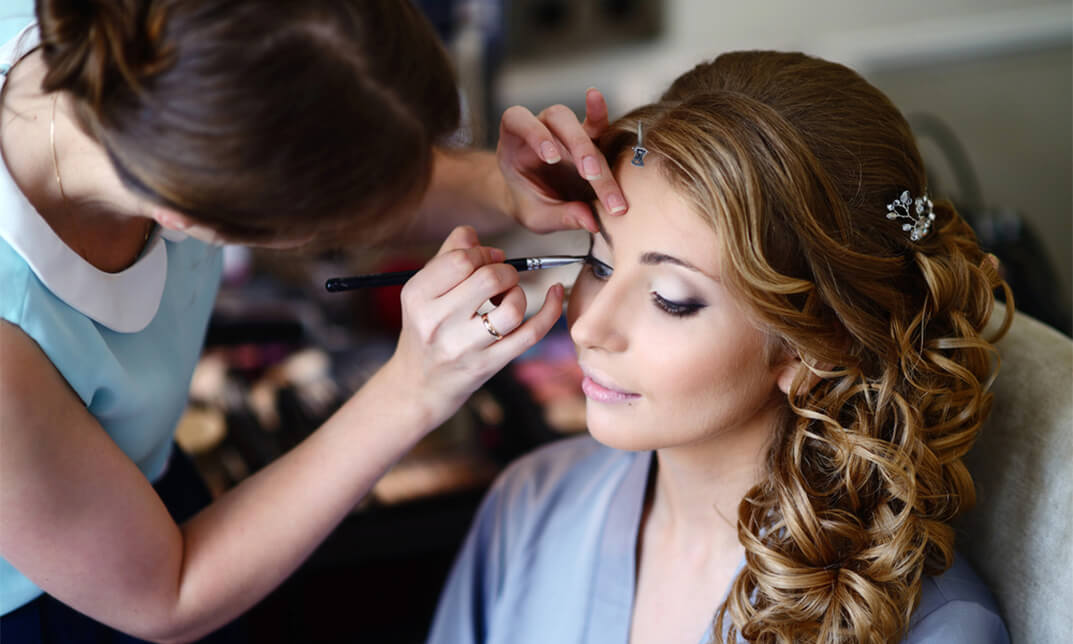Professional Makeup Artist Training
CPDUK Accredited | 50% OFF Certificate & Transcript
278 Students enrolled on this course 4.6 (7 Reviews)
 Last updated January 23, 2024
Last updated January 23, 2024
Course Curriculum
| Module 01 | |||
| What is a Cosmetic? | 00:15:00 | ||
| Cosmetics – From Tradition to Modernity | 00:15:00 | ||
| Equipment – Makeup Kits | 00:15:00 | ||
| Skin | 00:30:00 | ||
| Face | 00:30:00 | ||
| Lips | 00:30:00 | ||
| Eyes | 00:30:00 | ||
| Ten-Step Guide to Perfect Makeup | 00:30:00 | ||
| Special Makeup Applications | 00:30:00 | ||
| Essential Equipment for the Professional | 00:15:00 | ||
| Advanced Makeup Applications | 00:15:00 | ||
| Module 02 | |||
| Makeup Basics I | 01:00:00 | ||
| Makeup Basics II | 01:00:00 | ||
| Makeup Basics III | 01:00:00 | ||
| Makeup Basics IV | 01:00:00 | ||
| Makeup Basics V | 01:00:00 | ||
| Module 03 | |||
| Body Products Basics | 01:00:00 | ||
| Be Educated On Toxins And Detoxing | 01:00:00 | ||
| Using Bath Products | 01:00:00 | ||
| Sunless Tanning | 01:00:00 | ||
| Body Makeup | 01:00:00 | ||
| The Latest In Support Garments | 01:00:00 | ||
| How Looking Great Makes You Feel Great | 00:30:00 | ||
| Wrapping Up | 00:30:00 | ||
| Mock Exam | |||
| Mock Exam- Professional Makeup Artist Training | 00:30:00 | ||
| Final Exam | |||
| Final Exam- Professional Makeup Artist Training | 00:30:00 | ||
| Order your Certificates & Transcripts | |||
| Order Certificates & Transcripts / CPD QS | 00:00:00 | ||
Course Reviews
No Reviews found for this course.
Frequently asked questions
Can’t find the anwser you’re looking for ? Reach out to customer support team.
There are no specific prerequisites for this course, nor are there any formal entry requirements. All you need is an internet connection, a good understanding of English and a passion for learning for this course.
You have the flexibility to access the course at any time that suits your schedule. Our courses are self-paced, allowing you to study at your own pace and convenience.
For this course, you will have access to the course materials for 1 year only. This means you can review the content as often as you like within the year, even after you've completed the course. However, if you buy Lifetime Access for the course, you will be able to access the course for a lifetime.
Yes, upon successfully completing the course, you will receive a certificate of completion. This certificate can be a valuable addition to your professional portfolio and can be shared on your various social networks.
We want you to have a positive learning experience. If you're not satisfied with the course, you can request a course transfer or refund within 14 days of the initial purchase.
Our platform provides tracking tools and progress indicators for each course. You can monitor your progress, completed lessons, and assessments through your learner dashboard for the course.
If you encounter technical issues or content-related difficulties with the course, our support team is available to assist you. You can reach out to them for prompt resolution.





 LOGIN/Sign up
LOGIN/Sign up




